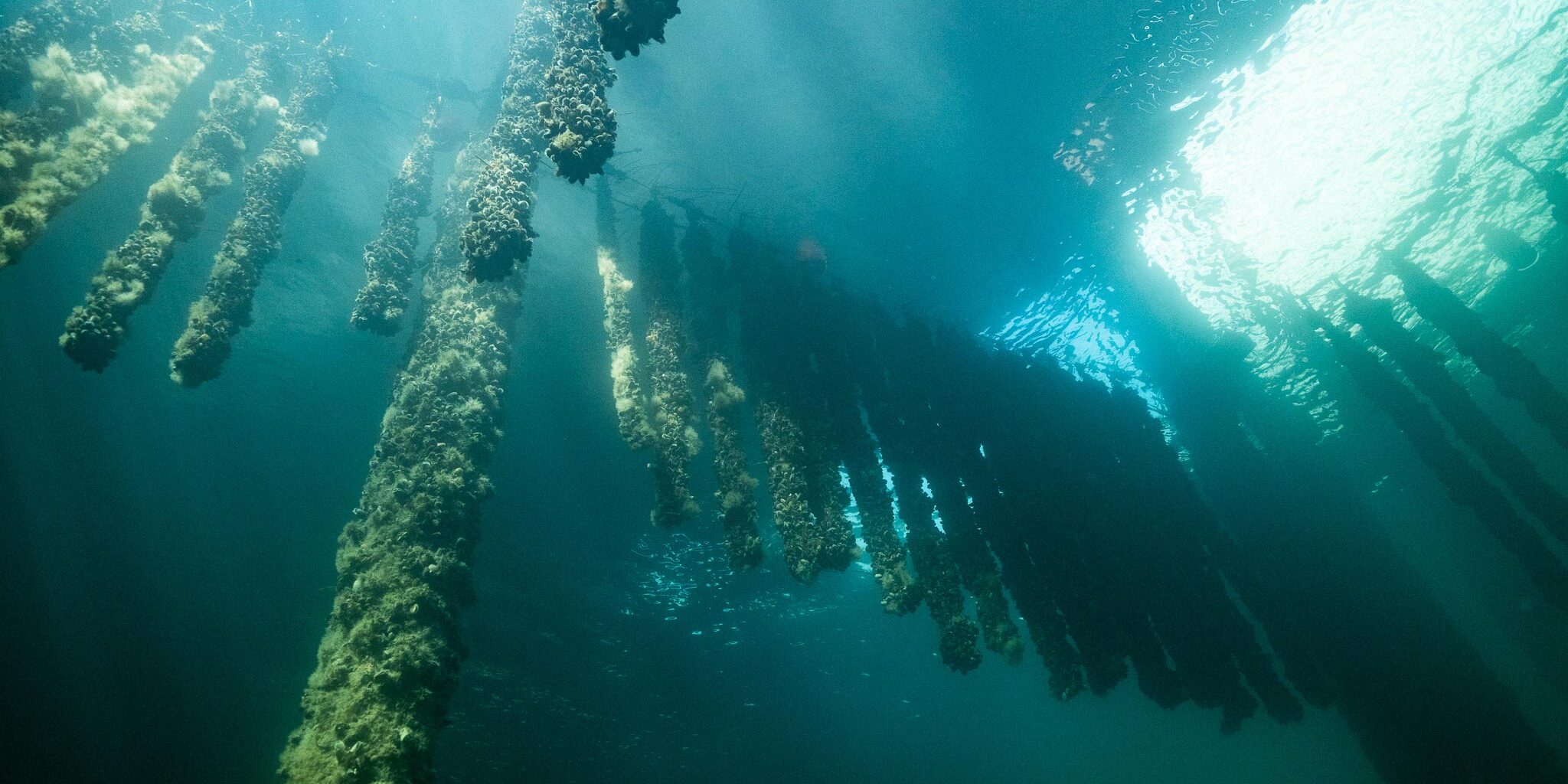Manifesto of regenerative ocean farming
1. We produce food
We have given ourselves the primary task of combining aquatic food production with active regeneration of the marine environment. As they grow our crops offer ecosystem services, such as nutrient absorption, increased biodiversity, binding of carbon dioxide, and other forms of mitigation against human-induced environmental harm, but to us these services are always directly linked to the cultivation of food as well as the numerous other practical uses of our harvested crops.
2. We cultivate on the ecosystems' own terms
Our cultivation is based on the existing resources that are native to our cultivation areas. We do not use fertilisers, pharmaceuticals, or any artificial methods of weed or pest control. We add nothing to the marine environment besides the cultivation equipment needed for our crops to grow, and we exclusively cultivate indigenous species so as to support local genetic diversity.
3. We do multi-trophic cultivation
We aim to simultaneously cultivate a number of different species that mutually benefit each other. By embracing multi-trophic cultivation as an ideal, we seek to counteract monoculture and actively contribute to fostering a healthy ocean with rich biological diversity. Our approach emphasises the interconnectedness of different species and trophic levels to create more sustainable and resilient marine ecosystems.
4. We counteract climate change
Our cultivation supports decarbonization of food systems by making high quality, climate-friendly ingredients available to consumers, and in this way replacing food items with a high carbon footprint with less emission heavy alternatives. We work to ensure that all parts of our production cycle is planned according to a low-emission target and aim to sell as much as possible through local channels.
5. We create robust business models
We combine, where possible, our regenerative cultivation with other income-generating activities such as low-impact fishing, processing, dissemination, education, and regenerative tourism. This approach enables more robust business models, increases local value creation and helps to secure local employment and thus the future of our coastal communities.
6. We take active part in our communities
We emphasise being firmly rooted in the communities surrounding our cultivation. We aim for the largest possible local market for our produce, and we strive to collaborate with, learn from and contribute to the building of knowledge among local residents, businesses, schools and civil society at large. We actively engage with our communities and promote ocean literacy and regenerative thinking in areas where it has not yet gained widespread acceptance.
7. We scale out rather than up
Out of consideration for the marine environment and due to our ambition to ensure local value creation, we work towards the establishment of small cultivation sites in large numbers, avoiding large scale cultivation and the risk of negative impact on local marine environments, this may entail. Having out-scaling as our evolutionary path, we work to achieve economies of scale by sharing infrastructure and combining biomass to reduce costs and tap into new markets.
8. We rely on knowledge
Our understanding of the marine environment and its resources is based on knowledge and scientific approaches to data collection and decision-making. We therefore happily collaborate with knowledge institutions that can help us monitor the marine environment, continuously adjust our course and make the right choices. We generously share our insights so that the regenerative approach can spread further across local communities and throughout the wider world, which we are part of and want to be role models for.

Behind the Manifesto
The background of the manifesto
Extensive human pressure, such as discharge of nutrients, destroyed habitats, ocean acidification and overexploitation of wild fish stocks has been going on for far too long. The future calls for marine food production that goes hand in hand with active restoration of degraded ocean ecosystems and take as its starting point that humans exist as a part of nature within an inextricable and complex web of relationships. We are well past the point, where doing as little damage as possible is sufficient. The very logic of marine food production needs to be reversed. Negative impact is no longer acceptable. Zero impact is no longer sufficient.
Our vision for the future of marine food production
We are blue community gardens, marine entrepreneurs, local businesses, universities, fishermen and stakeholder organisations with a common guiding ideal and a unifying vision for the future, where at all times, through our primary production at sea, we give more back to marine nature than we take. With this in mind, we have formulated eight shared transformative principles for the future regenerative cultivation and harvesting of marine crops. The principles adhere to the UN sustainable development goals, meaning that any regenerative cultivation initiative needs to balance considerations between environmental and social sustainability in the context of a sound and healthy economy.
Our definition of regenerative ocean farming
We understand regenerative ocean farming as the cultivation of edible aquatic species in such a way that the farming has an overall net positive impact on the surrounding marine ecosystems.
A framework for regenerative ocean farming
Our friends at C-Faarer have put together a coherent framework to help us all better understand what lies at the core of regenerative ocean farming. Here you will find - among other exciting stuff - an overview over the benefits of regenerative ocean farming and regenerative methods.
